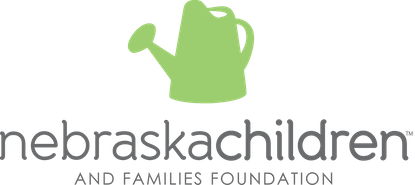Service Array Assessment
The Service Array Assessment covers more than three dozen key service types in four main areas:
- Basic Needs
- HealthCare
- Child and Youth Safety and Development
- Family Development
Since 2005 Nebraska Children and Families Foundation has facilitated Service Array Assessments in over 30 counties.*
Nebraska communities continue to use the Service Array Assessment to assess and enhance services available to children and families in their community which includes all services that promote well-being for children, youth and families. The goal is a detailed understanding of the strengths and needs of services in the community that is shared by service providers, consumers, and other community members across many sectors.
Purpose and result
The Service Array Assessment is a means for a community to assess and enhance its capacity to address the needs of children, youth and families and develop or improve a community prevention system. Completion of the full three main components of the Service Array Assessment yields:
-
Component 1: Information about the availability, quantity, quality and significance of individual services within the Prevention Continuum.
-
Component 2: A cross section of findings for all services, Service Array Matrix, that provides more in-depth and shared understanding about the issues impacting services, including the availability of resources, accessibility by intended consumers, perceived effectiveness, policies, etc.
-
Component 3: A Service Array Work Plan that is developed from the information gathered. This is a big picture document that assists communities in determining priority areas to be addressed over a set time frame, usually two to three years.
Process
The process includes:
-
Step 1: Convene a large group of diverse community agencies to share existing data and evaluations of services and programs. This a 6-8-hour process where partners come together to review, digest and assess all the available data. Examples of existing data sources are the Mobilizing for Action through Planning and Partnerships (MAPP) report completed by local public health departments and the most recent Comprehensive Juvenile Services Plan for the county. Nebraska Children gathers data for counties on key indicators for child well-being (infant mortality, high school graduation, child abuse and neglect, etc.) that shows county data in relation to state level data. Completion of the assessment of individual services including rating quantity, quality, and significance of services within the local prevention system.
-
Step 2: Complete the Service Array matrix which identifies overall community themes and priorities.
-
Step 3: Complete the work plan to strengthen of the Service Array system.
-
Step 4: Complile all documents into a community Service Array Assessment report which can be easily accessed by partners for future use.
Service Array Assessments in Nebraska have most frequently utilized trained facilitators and support through Nebraska Children.
Tools and Supporting Materials in this Section
*The tools and process for this assessment were developed by the National Child Welfare Resource Center for Family Centered Practice as a Service of the Children’s Bureau of the U.S. Department of Health and Human Services and edited (expanded) for Nebraska with permission from the developers. Since 2005 the National Child Welfare Resource Center for Organizational Improvement (NRCOI) and the National Resource Center for Child Welfare Data and Technology (NRCCWDT) have revised the process and a set of tools that child welfare agencies can use in conjunction with community stakeholders to assess and enhance their child and family service array.

